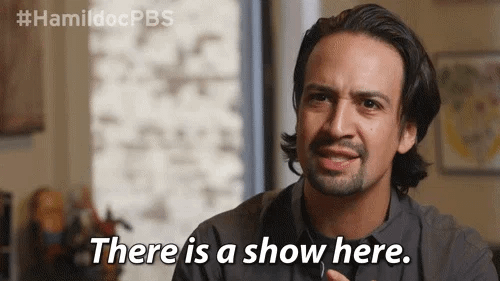Hot take of the week: Informed is the new identity politics.
I could pinch myself that Lindsey Cormack wrote a parenting book called How to Raise a Citizen (And Why It's Up to You to Do It) that comes out in 11 days.
I was lucky enough to get an early copy and let me tell you, reading this book feels like being kissed into a rational alternate universe where “civics” has an aura of virtuosity and, dare I say it, accessibility.


Happy Friday!
If the idea of civics feels more ick than appealing, keep reading.
This election year has delivered on much of what it promised, but there have also been some major curveballs leaving many questions unanswered.
I know, national politics takes up so much oxygen.
Yes, public education initiatives largely failed our generation.
There was only so much Schoolhouse Rock could do to pick up the slack.
And yes, we’re 1,000 percent civically adrift as a generation and nation (it’s not just the US btw).
BUT OK.
Onto what we need to know if we’re to ever effect the tiniest, most incremental changes that add up to a world we want our kids to live in, and luckily, Lindsey has written a treatise just for parents. We recently chatted over Zoom and something she said struck me as entirely novel:
Even if schools were crushing civic education, there are other non-cognitive skills that are absolutely critical to becoming an engaged and effective citizen that the learn-and-test model of education isn’t capable of developing in the same way that parents can.
So here’s the plan.
There are 13 Fridays (goosebumps) until the election so I’m just going to jump in.
Over the next 94 days, we’re taking a weekly microdose of civic knowledge together, using How to Raise a Citizen as a roadmap.
Starting August 16, every Friday I’ll be giving away a signed copy to the first reader to message me that they sent Civic EQ to 5 parents/caregivers.
Lindsey breaks down exactly what parents (and kids) need to know about civics into 5 foundational skills:
Being able to have difficult conversations
Voting
Primaries (honestly, SO MUCH MORE interesting than you would think)
Constitutional knowledge
Federalism
If you doubt spending your time on civics, I’ll leave you with a takeaway from a recent conversation I had with Dr. Sunshine Hillygus, a Duke University political science professor with a PhD from Stanford (the PoliSci mecca) whose research centers on how parents factor into a child’s civic literacy:
Parents are the single strongest predictor of a child’s civic-mindedness.
That’s a lot of responsibility, but it’s also a tremendous opportunity to adopt a growth mindset next to/alongside our kids.
Basically, they have a lot to learn, and so do we.
Dropping Some Knowledge: The F-Word
I remember we were driving down Sunset. I was very pregnant. It was one of those days that was so effing sunny, you’re pretty much crossing fingers everyone else isn’t as blind as you are. And then out of nowhere, Matt asked, “How do you listen to Hamilton on shuffle?”
So in the spirit of not learning things in any particular order, let’s jump into the concept of Federalism, the idea that some things are more suited to the federal government while others are better left to state and local governments.
As we know, the federal government consists of 3 branches:
The Executive branch (the Presidency)
The Legislative branch (Congress, divided into the House of Representatives and the Senate), and
The Judicial branch (the Supreme Court aka SCOTUS).
States are organized similarly, with governors having executive power and most states also having a bicameral (two-house) legislature, with the exception of Nebraska, which only has one legislature. And there are state courts, but we can’t really get into all of that here.
What’s tricky about federalism — but ever-so-relevant — are the heated disagreements over what constitutes a federal issue and what should be left to the states. And of course, it’s always changing, in ways that Hamilton could never have imagined. Right now, we’re seeing this play out in a big way with abortion and immigration, but there are other areas where the idea of federalism plays a big role too.
From 1973 (Roe v. Wade) to 2022 (Dobbs), abortion was a federally-protected constitutional right, meaning individual states couldn’t criminalize abortion within certain parameters. Now it’s up to the states to decide, making it one of the biggest issues of the upcoming election.
Immigration policy is typically handled by the Department of State and Department of Homeland Security, but immigration is frequently in the spotlight when there are disagreements about the impact on state and local communities.
The Affordable Care Act (aka Obamacare) is a recent example of a nationwide healthcare policy created by the federal government but with much of the implementation being dealt with at state and local levels.
Education — a hot button topic for parents everywhere — is mostly a state issue. There’s some federal funding, but deciding what subjects are required, which books to teach and what is needed to graduate are up to the states. Fun fact: for as much attention as it gets, the Department of Education is actually the smallest of the 15 main executive departments.
Chapter 8 of How to Raise A Citizen, “Federalism and Who is Responsible for What”, covers all of the above in much greater detail, but still in a way that’s accessible. Happy reading.
My hope is this crash course in the very basics of federalism will take you into the weekend feeling slightly more knowledgeable, more capable to identify how civics touches on things we’re reading about everyday, and just a little more confident in your ability to raise the next citizen.
More soon,
Sarah
Learn more about Lindsay Cormack here and follow her on Instagram too.




